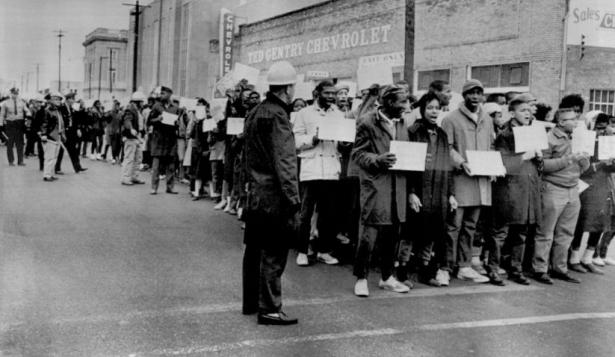One Person, No Vote: How Voter Suppression Is Destroying Our Democracy
By: Carol Anderson.
Publisher: Bloomsbury, 271 pages, $27.
As I finished the first chapter of “One Person, No Vote: How Voter Suppression Is Destroying Our Democracy,” I found myself fighting the urge to head to downtown Washington, tie the book to a brick and chuck it through a window at Republican National Committee headquarters.
It wasn’t because author Carol Anderson, chairwoman of the Department of African American Studies at Emory University in Atlanta, has written a lousy book. Indeed, her description of the perpetual war that blacks and now Latinos have fought to get and keep the right to vote is impeccably researched, deftly written and, sadly, prescient.
What made me want to holler were the reams of evidence Anderson presents to prove an irrefutable point: Since Reconstruction, conservative whites have tried to strip minorities of their constitutionally guaranteed right to vote, by any means necessary. It’s been going on, she writes, for 130 years and counting, retarding black political power and undermining their elected allies.
Yet instead of nefarious plots hatched in smoke-filled backrooms, or racist deputy sheriffs beating voter-registration workers, Anderson writes, the current attack on the 15th Amendment is happening in the open, in real time. And voting restrictions on one group tend to spread to others, eroding democracy for everyone.
Past blatant discrimination against black voters — poll taxes, literacy tests, counting bubbles on soap bars — has transmogrified into calls for strict voter ID laws, a sweeping solution for what numerous studies have shown is a nonexistent problem. Enabling it: President Donald Trump, the nation’s most powerful elected official, who falsely claims 3 million people fraudulently voted in the 2016 election and set up a sham commission to investigate. It fell apart under the weight of its own vast voter-suppression agenda, but nevertheless had an impact.
“The lie of voter fraud,” Anderson writes, now has “the presidential seal of approval.”

Carol Anderson Photo by Dave Wetty
As an author, she plays political archaeologist, tracing the 1890 Mississippi Plan denying black voters to the current campaign against the African-American electorate, which kicked into overdrive after black voters swept President Barack Obama into office in 2008. Her rogue’s gallery of perpetrators includes depressingly familiar names — including Attorney General Jeff Sessions, who fought to restrict the vote in his native Alabama.
“One Person, No Vote” is slim — 160 pages (followed by more than 100 pages of notes and index) — but it punches above its weight, like a lecture from a professor with superb command of language. Anderson’s storytelling shines when recounting Alabama’s special Senate election in 2017, a high point of black political clout, and she ends on a high note: ongoing state-level efforts to expand the vote.
Those chapters, thankfully, blunted my vandalistic impulse. Still, the book reminded me of the classic anti-establishment expression: If you’re not outraged, you’re not paying attention.
Joseph Williams, a former assistant managing editor at the Star Tribune, is now a senior editor for U.S. News & World Report in Washington, D.C. He covers the Supreme Court and national politics.


Spread the word